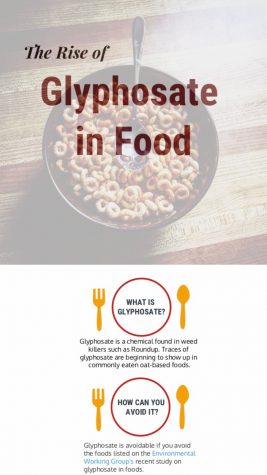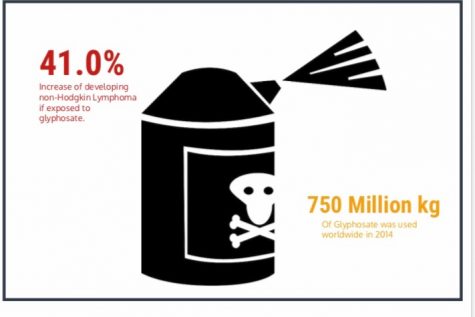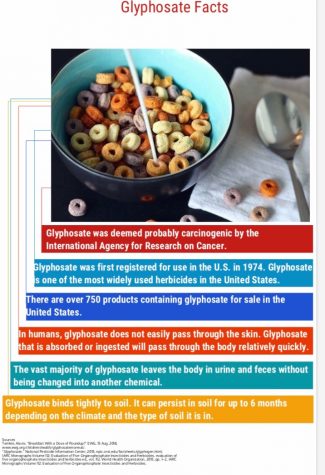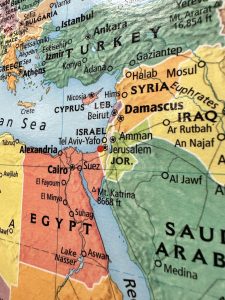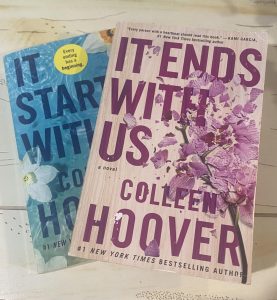The Rise of Glyphosate
June 4, 2019
Your favorite childhood breakfast foods could be coming back to haunt you. Traces of glyphosate found in herbicides, are beginning to show up in tests on oat-based foods.
Many people are unaware that dangerous chemicals are lurking in the foods they eat every day. Glyphosate is one of these hidden murders deemed probably carcinogenic to humans by the International Agency for Research on Cancer. It is also one of the main chemicals found in weedkillers, specifically Roundup.
The toxicity of straight glyphosate is low, but the chemicals it is mixed with make it dangerous if it is ingested or absorbed through the skin. Your day to day contact with glyphosate is limited unless you touch it, while it’s in liquid form, and then eat. Most of your glyphosate absorption is coming from eating oat-based foods such as cereal or oatmeal.
By eating large amounts of glyphosate above what is considered safe by the FDA (0.1-310 ppm*) you are at risk of developing cancer. According to the National Pesticide Information Center, it is carcinogenic causing a 41% increase of developing non-Hodgkin Lymphoma.
People’s risk of ingesting glyphosate has gone up a worrisome amount since it was first introduced in 1974 due to genetically modified plants to resist glyphosate. According to Down to Earth in 1995, 51 million kg of glyphosate was used worldwide and that amount increased to 750 million kg in 2014.
A study done by the Environmental Working Group shows that 45 oat-based foods have been tested and all of them have some glyphosate except for 2 and that a large amount of them are over 120 ppb*, which EWG considers a safe amount.
Since most oat-based foods show high levels of contamination, it can be difficult to find brands that won’t expose you to high levels of glyphosate. Most organic foods that were tested were below 120 ppb, so they are considered safe for consumption by both EWG and the FDA. Other non-organic brands such as Nature’s Path, Cascadian Farms and Bob’s Red Mill had little to no glyphosate in their samples tested by EWG.
The consequences of long term exposure to glyphosate can be dangerous. Last week Monsanto, a company that produces Roundup, was sued by a California man claiming that Roundup caused his non-Hodgkin Lymphoma. Last August another man won his case against Monsanto also claiming that his cancer was caused by long term exposure to Roundup.
There is no way to completely avoid glyphosate, but by purchasing organic foods and avoiding the foods on EWGs food list your breakfast foods can be safe again.
*Parts Per Billion
